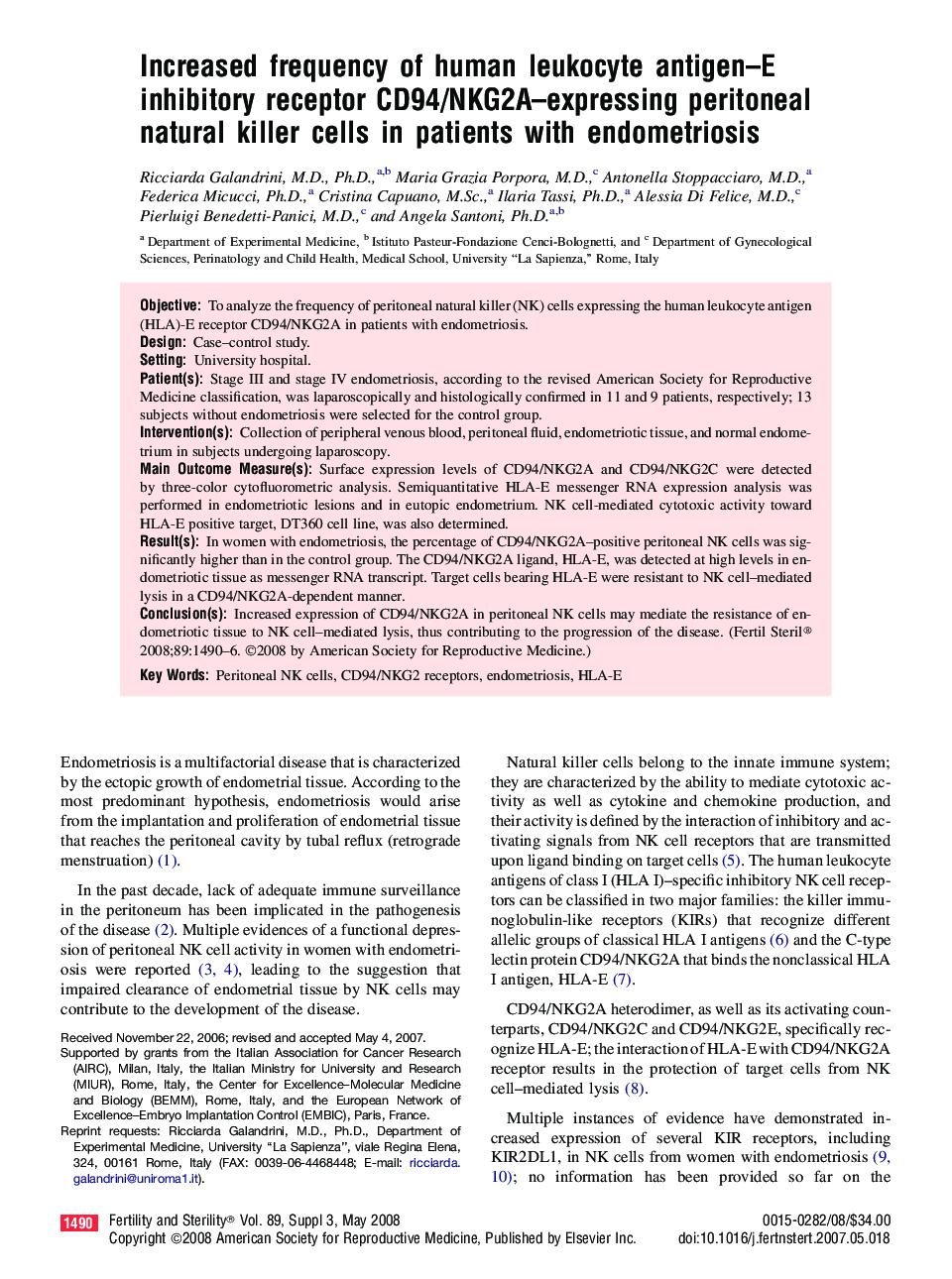| کد مقاله | کد نشریه | سال انتشار | مقاله انگلیسی | نسخه تمام متن |
|---|---|---|---|---|
| 3941782 | 1253627 | 2008 | 7 صفحه PDF | دانلود رایگان |

ObjectiveTo analyze the frequency of peritoneal natural killer (NK) cells expressing the human leukocyte antigen (HLA)-E receptor CD94/NKG2A in patients with endometriosis.DesignCase–control study.SettingUniversity hospital.Patient(s)Stage III and stage IV endometriosis, according to the revised American Society for Reproductive Medicine classification, was laparoscopically and histologically confirmed in 11 and 9 patients, respectively; 13 subjects without endometriosis were selected for the control group.Intervention(s)Collection of peripheral venous blood, peritoneal fluid, endometriotic tissue, and normal endometrium in subjects undergoing laparoscopy.Main Outcome Measure(s)Surface expression levels of CD94/NKG2A and CD94/NKG2C were detected by three-color cytofluorometric analysis. Semiquantitative HLA-E messenger RNA expression analysis was performed in endometriotic lesions and in eutopic endometrium. NK cell-mediated cytotoxic activity toward HLA-E positive target, DT360 cell line, was also determined.Result(s)In women with endometriosis, the percentage of CD94/NKG2A–positive peritoneal NK cells was significantly higher than in the control group. The CD94/NKG2A ligand, HLA-E, was detected at high levels in endometriotic tissue as messenger RNA transcript. Target cells bearing HLA-E were resistant to NK cell–mediated lysis in a CD94/NKG2A-dependent manner.Conclusion(s)Increased expression of CD94/NKG2A in peritoneal NK cells may mediate the resistance of endometriotic tissue to NK cell–mediated lysis, thus contributing to the progression of the disease.
Journal: Fertility and Sterility - Volume 89, Issue 5, Supplement, May 2008, Pages 1490–1496